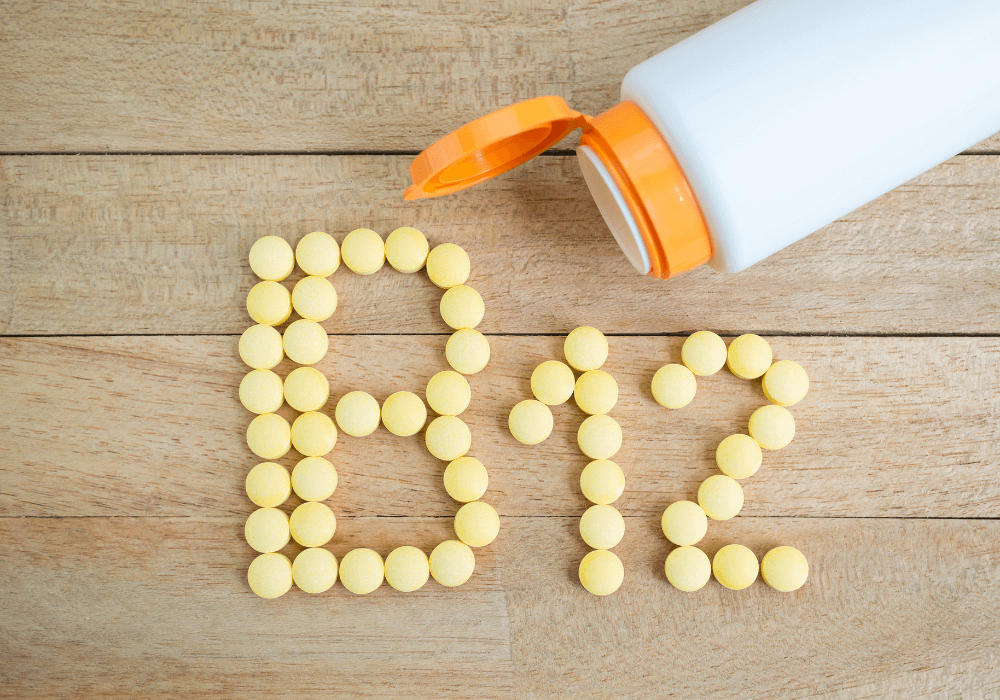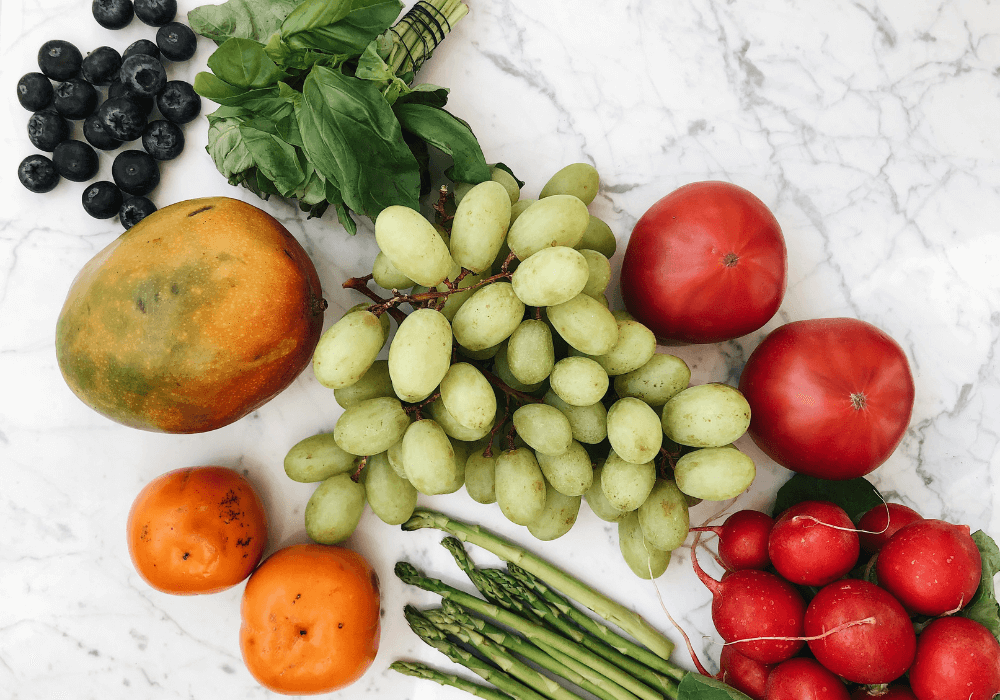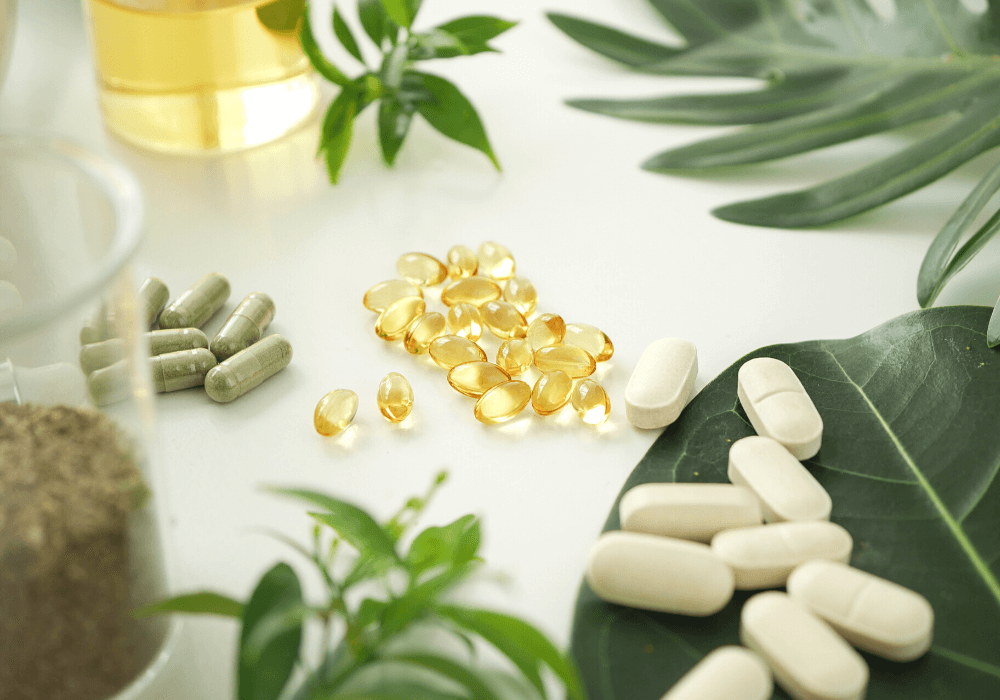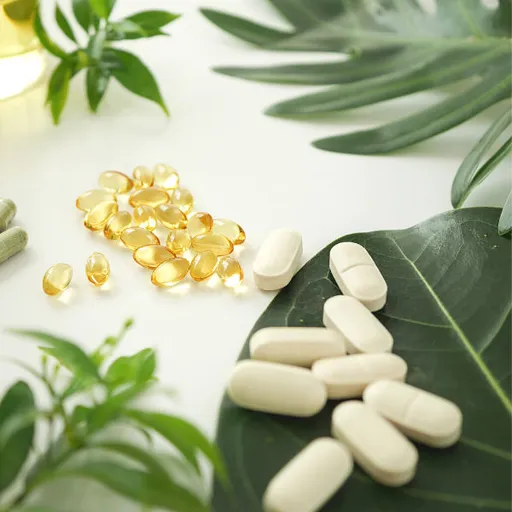Today we’re diving into vitamin B12, the most important supplement for people following a plant-based diet!
Did you know that there are three supplements nearly everyone eating a plant-based diet should be taking on a regular (ie daily or weekly) basis?
That’s right! Even with our current understanding of the importance of diet individuality, these three supplements apply across the board.
This is a super important topic as it can directly impact your health. So I’ve written this three-part series to go deeper into these three supplements and give each one their time in the spotlight. My hope with this series is that as someone following a plant-based diet, or simply adding more plants into your diet, you’re armed with the information you need to make healthy choices.
For now, let’s dive into the #1 supplement you should be taking if you’re following a plant-based diet.
The #1 Supplement You Need for a Healthy Plant-Based Diet

By far the most important supplement for plant-eaters is vitamin B12. Maybe that’s not be much of a surprise!
Before we dive into how best to supplement B12, let’s talk for a hot minute about what it actually is.
What is B12?
Vitamin B12 is a water-soluble vitamin (which means it dissolves in water) and is needed for proper red blood cell formation, neurological function, and DNA synthesis. Humans actually need minuscule amounts of B12 but the tiny amounts we do need are ESSENTIAL to our healthy functioning. 1
Without getting too complicated, B12 is formed in animals from their diets or via the bacteria in their intestines. Of course, we also have bacteria in our intestines, but the amount of B12 we produce in our intestines isn’t enough.2 That’s why no matter what kind of diet you eat, you need to get your B12 from food or supplements. People who eat animals generally fill all their B12 requirements from the animal products in their diet. People who eat a plant-based diet, though, need to look to other sources for their B12.
Unfortunately, B12 deficiency is common in people eating a plant-based diet due to a lot of myths around the need for B12 supplementation. To be clear, people eating a plant-based diet aren’t B12 deficient because there’s no way to get enough B12 eating this way. They’re deficient because they’re confused and not taking a B12 supplement! Don’t be one of those people!
Additionally, it can take years for a deficiency to show up, so often people think that they don’t need to take a supplement because they still feel fine after a few months or years of eating plant-based.
There are also a lot of B12 myths floating around as “facts” that are making people confused who just want to be healthy. I recently read about one such common myth that says you can simply eat unwashed organic produce and get your B12 in. Now, hold on a sec.
Even IF this were true, eating produce with a side of dirt sounds so unappetizing, I’d probably just eat less fruits and veggies simply to avoid the gritty dirt in my food! Plus, the effectiveness of getting sufficient B12 from soil in our current era has not been proven to be adequate. I mean, come on, the type of soil food is grown in varies so widely from place to place, there’s no way B12 amounts could be similar everywhere. So let’s keep washing our fruit and veg, and get our B12 from somewhere else!

Now that you have a little more of an idea what B12 is and its importance for us humans, let’s talk supplementation and quantities.
How much B12 do I need?
This is another area of confusion. If you Google “how much B12 do I need?” you’ll see three or four different amounts in the first few articles. And, if you know a bit more about nutrition and look up what the recommended daily amount (RDA) of B12 is, you’ll get similar varying answers!
So what’s a plant-eater to do?
While the RDA for the meat-eating standard adult is around 2.5-3 micrograms (mcg) per day, for those of us eating a plant-based diet, we actually need to be supplementing with a much higher dosage. This is because our bodies only absorb around 1% of vitamin B12 from a supplement. Yes, you read that right. One percent. 1
So, if you keep refining that Google search, you’ll eventually start seeing RDA values specifically for people eating a plant-based diet. And you might be surprised to see how much the RDA is for that exact same little vitamin for plant-eaters.
Here’s the deal about taking vitamin B12:
While experts acknowledge that it is POSSIBLE to get all the B12 you need from fortified foods alone, such as soy milk, mock meats, etc., they also recommend against it. Why? Because it’s pretty hard for the average person to be constantly tracking how much B12 they’re getting from fortified foods. And research proves this by showing that people eating a plant-based diet and getting their B12 from fortified foods without added supplements are consistently low in B12 levels! 5
Of course, this isn’t EVERYONE, but it is the majority of people who aren’t supplementing.
Plus, like I mentioned way at the beginning of this blog post, B12 is a water-soluble vitamin. This means that our bodies absorb what they need and then filter out however much B12 we don’t need through our urine. This means B12 is a super safe supplement. So there’s no reason not to take a B12 supplement and cover your bases!
And we’re not talking about some super niche, inaccessible, and crazy expensive superfood powder here. Vitamin B12 is available all over the place and is pretty inexpensive.

By now you’re probably wondering “so how much B12 do I need?!”
Your daily or weekly B12 supplement:
There are two methods to supplement B12, which means there are two options available to you.
Either, you can take a daily B12 supplement of 250-500 mcg or a weekly supplement of 2500 mcg. 1
Remember I said that experts agree we absorb only about 1% of supplemented B12? Well, that’s why we need to supplement in such high quantities. To get the equivalent of the RDA’s 2.5-3 mcg of B12 daily (for normal adults eating an omnivorous diet), we need to supplement 100x that much (i.e. 250-300 mcg per day).
As far as whether you chose to supplement daily in smaller doses (250-500 mcg) or weekly in larger doses (2500 mcg) is up to you. There doesn’t appear to be a difference in effectiveness so just make the decision that works for you and your schedule. The important thing is to stick to it!
I personally take a daily supplement because I find it easier to remember if it’s part of my everyday morning routine.
The final thing to note here is that B12 supplements are best absorbed when they mix with the saliva in our mouths, so look for a sublingual or chewable supplement as opposed to one your swallow.
This is part one of my three part series on the three supplements everyone following a plant-based diet should be taking. Parts two and three coming soon!
Questions about supplementing on a plant-based diet? Let’s keep the conversation going! I’m here for you in the comments, or connect with @plantssogood on Instagram or Facebook!
References:
- Vitamin B12: fact sheet for health professionals. National Institutes of Health, Office of Dietary Supplements website. https://ods.od.nih.gov/factsheets/VitaminB12-HealthProfessional/.
- Norris J. B12 in plant foods. VeganHealth.org website. http://www.veganhealth.org/vitamin-b12-plant-foods/.
- Walsh S. What every vegan should know about vitamin B12. The Vegan Society website. https://www.vegansociety.com/resources/nutrition-and-health/nutrients/vitamin-b12/what-every-vegan-should-know-about-vitamin-b12.
- Norris J. Vitamin B12. Vegan Health website. https://veganhealth.org/vitamin-b12/.
- Gallego-Narbón A, Zapatera B, Barrios L, Vaquero MP. Vitamin B12 and folate status in Spanish lacto-ovo vegetarians and vegans. J Nutr Sci. 2019;8:e7. https://www.ncbi.nlm.nih.gov/pmc/articles/PMC6391582/.








